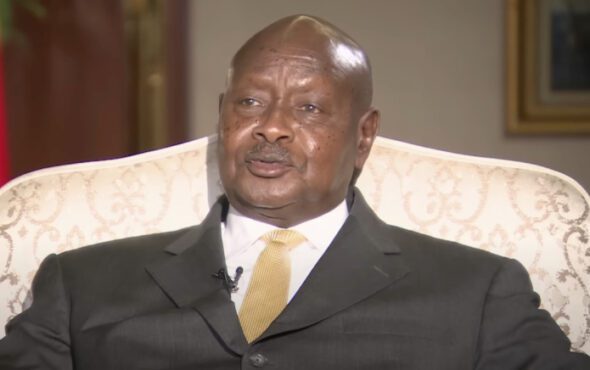
Uganda’s president, Yoweri Museveni, has refused to sign the Anti-Homosexuality Bill that imposes the death penalty for being gay, instead returning it to parliament with an order that it be made even harsher.
The decision was announced on 20 April after the president met with MPs who opted to return the legislation to the national assembly “with proposals for its improvement”.
Speaking at a news conference after the meeting, chief whip Denis Hamson Obua shared that the president had in principle agreed to sign the bill into law.
“Before that is done we also agree that the bill will be returned in order to facilitate the reinforcement and the strengthening of some provisions in line with our best practices,” he said.
READ MORE: Uganda’s president calls on Africa to “save the world” from homosexuality
The amendments will be drafted in a meeting between Museveni and parliament’s legal and parliamentary affairs committee on 25 April, Obua confirmed.
In its current form, the bill would see capital and life-imprisonment sentences for gay sex, up to 14 years for what it describes as “attempted” homosexuality and 20 years for “recruitment, promotion and funding” of same-sex “activities”.
Asuman Basalirwa first introduced the bill to parliament, explaining that it exists to “protect our church culture; the legal, religious and traditional family values of Ugandans from the acts that are likely to promote sexual promiscuity in this country.”
READ MORE: LGBTQ+ Kenyans and Ugandans hide from wave of homophobic abuse
Speaking on 21 March, the lawmaker continued: “The objective of the bill was to establish a comprehensive and enhanced legislation to protect traditional family values, our diverse culture, our faiths, by prohibiting any form of sexual relations between persons of the same sex and the promotion or recognition of sexual relations between persons of the same sex.”
The president has 30 days to either sign the legislation into law, return it to parliament for updates, or veto it entirely.
If, however, he returns it to parliament twice, it will be automatically passed into law without the president’s assent.



